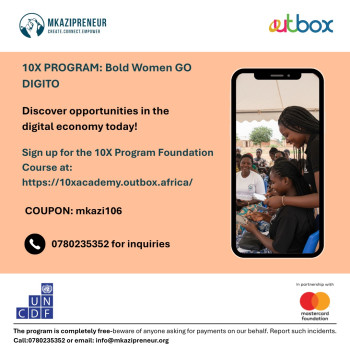Presence of covid19 in countries came with different measures put in place to minimize spread of the virus. In Uganda, public and private transport was banned, non-essential businesses were closed, public gatherings prohibited to mention but a few. However, the “essential” category businesses and services like major supermarkets, logistics services, pharmacies, hospitals and services remained operating
Many non-essential Business owners whose shops were closed patiently stayed home, counting down to the end of the initial 14 day lockdown that had been tabled by the president of Uganda. Just like a few had predicted, lockdown extensions followed. Now, it is important to note that there was no limit to access outsourced logistics services. Safe Boda, Uber Boda, Jumia Boda remained functioning, delivering commodities to homes from mainly major supermarket chains and grocery markets. By the start of the first phase of lockdown extension, some business owners had switched to selling online, fully making use of the available logistics services and online payments
Most of Uganda’s domestic B2C e-commerce sector has always run on mobile devices and on social media platforms, including Facebook, WhatsApp, Snapchat and Twitter. This is attributed to rapid growth in telecommunications users and the widespread use of mobile money payments: in fact, most commercial banks have also implemented Mobile Money services and visa cards.
According to a recent analysis provided by COVID-19 e-commerce Insight, based on the transaction data of 2,500 brands, across 100 countries, pure e-commerce firms are so far holding up well in Europe and the US, while data in Asia and most African counties shows a continued decline in online sales. It would seem that where e-commerce has established itself among consumers, there has been a tendency to switch to purchasing online. Underdeveloped e-commerce markets like Uganda were not sufficiently ready to respond, but are now starting to
Mary Nakanjako sells matooke and Irish potatoes in Nateete Market. After the first confirmed cases of COVID-19 in March her sales collapsed, as shoppers stayed away from the market. She turned to Facebook, offering online orders and free home delivery to residents of the city. Within days she had transformed her business, generating over five times her typical sales at the market. Home delivery services have become increasingly popular. Many business owners have now woken up and are fully embracing it. Covid19 season has given birth to online stores e.g. Kikuubo online, Safeboda online shop, Nakasero market online, Tuleete Drinks and a boost to already existing ones like Jumia. It is now evident that a mobile phone in hand, internet and an online payment platform is all a business owner needs to sell online.
E-commerce has tremendous potential, there’s a huge opportunity to fill this gap. This was true before the crisis and will now accelerate. Mind-sets are changing, among both consumers and sellers. Brands that were uncertain about their commitment to e-commerce are very likely to switch their priorities toward digital. E-commerce is now a necessity and will be central to overcoming the economic downturn. So what is stopping you from selling online?
I read this interesting statement recently: “Due to the lockdown caused by covid19, school is online, church is online, work is online, parties are online, meetings are online, what is your business doing offline?”






